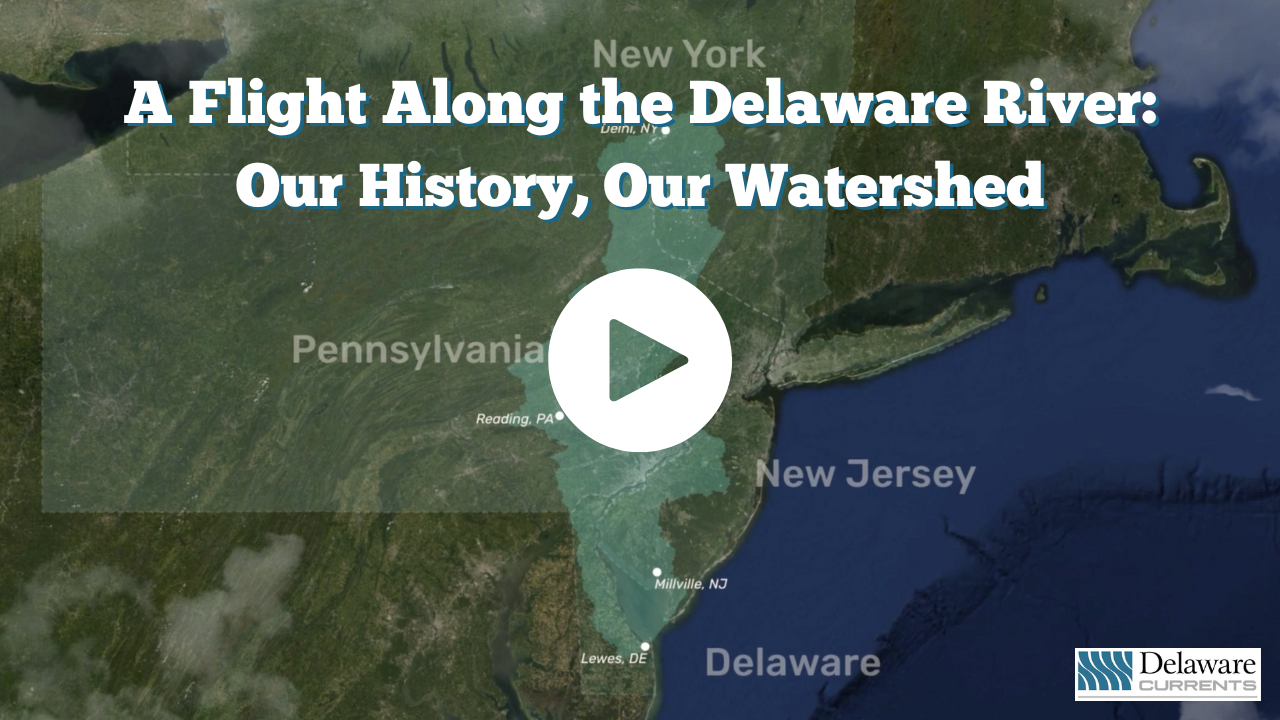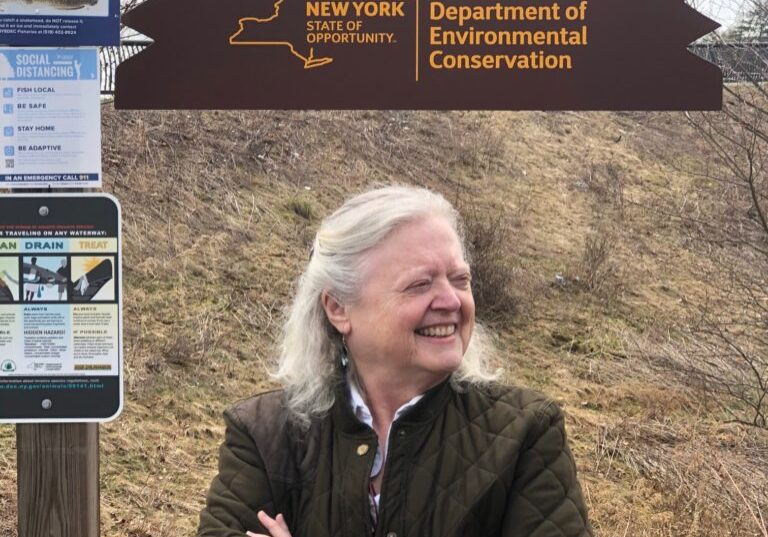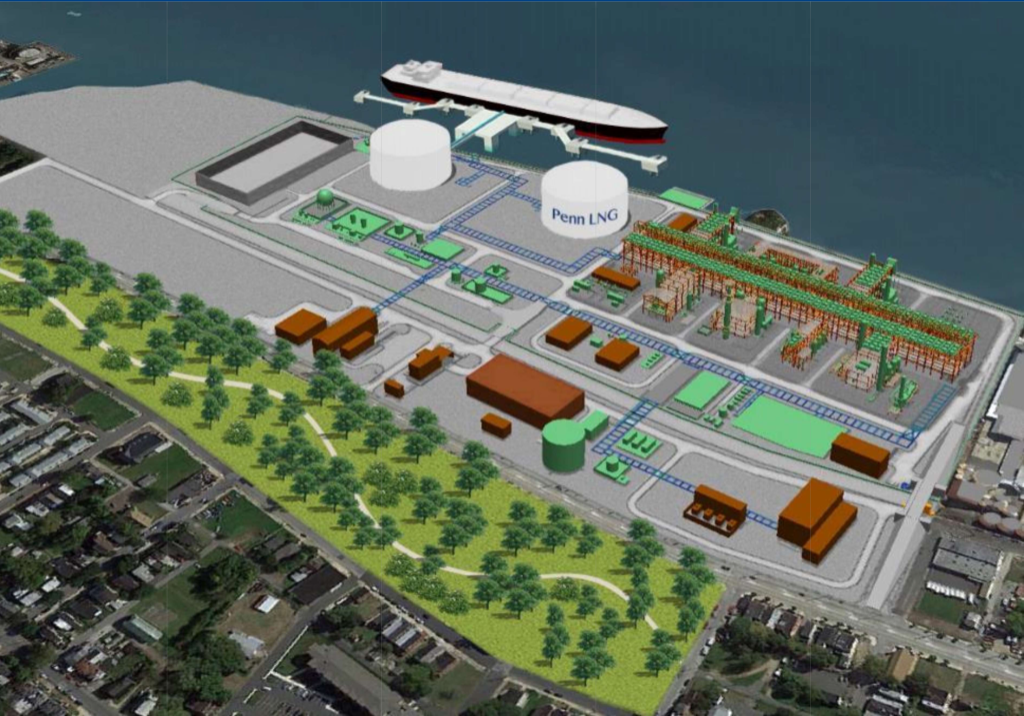
Gibbstown LNG project hit with yet another setback
| April 26, 2023

For our complete coverage of the Wyalusing, Pa./ Gibbstown, N.J. LNG project, please click here.
A federal agency on Monday denied a critical permit at the heart of a controversial proposal to bring liquified natural gas via rail from Wyalusing, Pa., to a Delaware River port in Gibbstown, N.J.
The agency, the Pipeline and Hazardous Materials Safety Administration, turned down the request to renew a special permit, according to a notice buried in The Federal Register.
Beyond an 18-word summary of the special permit application, the administration offered no explanation for the grounds for the denial.
Regardless, it is yet another setback for the project, which has slowly been unraveling as it faces one regulatory, economic and logistical hurdle after another.
The project’s sponsor, New Fortress Energy, and its affiliate, Energy Transport Solutions, planned to take fracked gas by pipeline to a proposed liquification plant in Wyalusing, Pa., and then send as much as 3 million gallons of super-cooled LNG per day by rail — and highway — to a Delaware River port in Gibbstown, N.J.
From there, the LNG would be shipped overseas.
Routes mapped by opponents of the plan show that various rail and highway routes could cut through as many as 18 Pennsylvania and New Jersey counties, 15 of them in the Delaware River watershed.
Opponents have criticized the plan as dangerous, referring to the proposed 100-car rail lines as “bomb trains.”
A hazardous materials expert has previously told Delaware Currents that one rail car could theoretically take out an entire community, but that the specialized tankers required to transport LNG by rail would be cost-effective and safer than having it on highways, where trucks would be subjected to careless drivers, traffic and weather.
From 1994 through 2005, hazardous materials released in railroad accidents resulted in 14 deaths, Joseph H. Boardman, who was then the administrator of the Federal Railroad Administration, testified in 2006. By comparison, hazardous materials released in highway accidents during the same period resulted in more than eight times as many deaths, he said.
Whether NFE could make the project financially work solely by relying on highway tankers is an open question, given the difference in volume of rail vs. trucks.
It would take an ant farm of highway tankers, each carrying 10,000 gallons of LNG, to equal trains of 100 tanker cars, each carrying 30,000 gallons of LNG.
NFE appeared to be braced for the loss of its LNG-by-rail option, according to its annual report.
“We have the ability to transport LNG from our Pennsylvania Facility via truck, and this logistical solution is available to us should we be unable to transport by rail,” it wrote.
It also said that it intends to re-apply for permits for the Wyalusing site that have since lapsed “with the aim of obtaining these permits to coincide with the commencement of construction activities,” it said.
A press representative for New Fortress, which reported spending about $128 million on the Wyalusing plant, did not respond to an email seeking comment.
Ruling welcomed by opponents
Opponents of the project hailed the decision by the PHMSA but noted that, though the plan might be on life support, it was not dead.
“The future of the Gibbstown liquefied natural gas terminal is looking bleaker by the day,” said Kimberly Ong, a senior attorney at the Natural Resources Defense Council. “Denial of the special permit is a necessary, but not sufficient, step to stop the construction of the Gibbstown LNG terminal.”
Tracy Carluccio of the Delaware Riverkeeper Network called the ruling a “righteous decision.”
“While this doesn’t spell the end to the proposed Gibbstown LNG export terminal, it is a major impediment that makes it all the more difficult for this convoluted, high-risk project to be successful for New Fortress Energy,” she said. “With this denial, the federal government has agreed with the public and the technical experts that the extraordinary danger of LNG rail transport is not acceptable for the Gibbstown/Wyalusing export project.”
What’s next
Activists called on the Biden administration to roll back a separate national rule that broadly allowed LNG by rail that was issued in 2020 during the Trump administration.
It’s unclear when the PHMSA will issue a decision on that proposed rollback.
Even if the administration were to leave the rule in place – which appears unlikely – New Fortress would face a steep challenge of finding required newer model rail tankers.
The kinds of improved, more robust cryogenic tank cars that the federal government would require under the national rule have not even been built and would be extremely costly and time-consuming to get built, said Wendy J. Buckley, president and chief executive officer of Specialty Transportation and Regulatory Services, a consulting firm that specializes in the transportation of hazardous materials.



![DC_Image [Image 4_Assunpink Meets Delaware] meets Delaware The Assunpink Creek on its its way to meet the Delaware River. The creek passes through woods, industrial and commercial areas and spots both sparkling and filled with litter.](https://delawarecurrents.org/wp-content/uploads/bb-plugin/cache/DC_Image-4_Assunpink-meets-Delaware-1024x768-landscape-14f069364113da5e8c145e04c9f2367c-.jpg)



